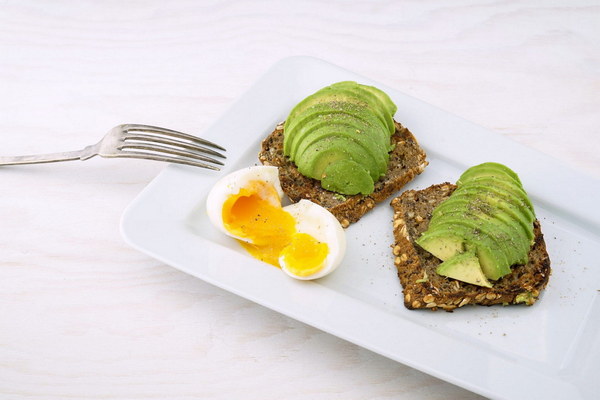Nourish Your Mind Fortify Your Body A Guide to AntiAging for the Brain and Body
As we journey through life, the aging process affects both our mind and body. While it's impossible to stop time, there are ways to slow down the signs of aging and maintain a healthy and vibrant lifestyle. This article explores how to combat brain aging and take care of your body, ensuring that you age gracefully and enjoy a fulfilling life.
1. Mind-Body Connection
The mind and body are closely connected, and a healthy mind contributes to a healthy body. To start, engage in activities that stimulate your brain, such as puzzles, reading, and learning new skills. These activities help maintain cognitive function and reduce the risk of cognitive decline.
2. Nutrition
A well-balanced diet is essential for a healthy brain and body. Include a variety of fruits, vegetables, whole grains, lean proteins, and healthy fats in your meals. Here are some key nutrients to focus on:
- Omega-3 fatty acids: Found in fish, nuts, and seeds, omega-3s have been shown to improve brain function and reduce inflammation.
- Antioxidants: Fruits and vegetables, particularly those rich in vitamin C and E, help protect your brain from oxidative stress.
- B vitamins: Found in eggs, lean meats, and fortified cereals, B vitamins are crucial for brain health and can help prevent cognitive decline.
- Polyphenols: Found in dark chocolate, green tea, and red wine, polyphenols have been shown to improve brain function and reduce the risk of neurodegenerative diseases.
3. Physical Exercise
Regular physical activity is not only beneficial for your body but also for your brain. Exercise increases blood flow to the brain, which can improve cognitive function and reduce the risk of age-related diseases. Aim for at least 150 minutes of moderate-intensity aerobic exercise or 75 minutes of vigorous-intensity exercise each week.
4. Sleep
Adequate sleep is crucial for brain health. During sleep, the brain clears away toxins that accumulate throughout the day, which can contribute to cognitive decline. Aim for 7-9 hours of quality sleep each night.
5. Stress Management

Chronic stress can take a toll on both your mind and body. Practice stress-reducing techniques such as meditation, deep breathing exercises, and yoga to keep your stress levels in check.
6. Social Connections
Maintaining strong social connections can help protect against cognitive decline. Spend time with friends and family, join clubs or groups, and participate in community activities to foster a sense of belonging and reduce feelings of loneliness.
7. Mental Stimulation
Challenging your mind with new experiences and learning can help keep your brain active and healthy. Take up a new hobby, learn a new language, or try something completely out of your comfort zone.
8. Avoid Harmful Habits
Limit your intake of alcohol, quit smoking, and avoid excessive caffeine consumption. These habits can contribute to cognitive decline and increase your risk of age-related diseases.
9. Regular Health Check-ups
Stay proactive with your health by scheduling regular check-ups with your doctor. Early detection and treatment of health conditions can help prevent cognitive decline and maintain your overall well-being.
In conclusion, to combat brain aging and take care of your body, it's essential to focus on the mind-body connection. By incorporating these anti-aging strategies into your daily routine, you can enjoy a healthier, happier, and more fulfilling life as you age. Remember, it's never too late to start making positive changes!









